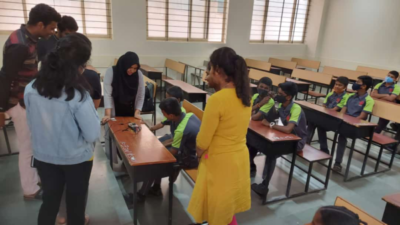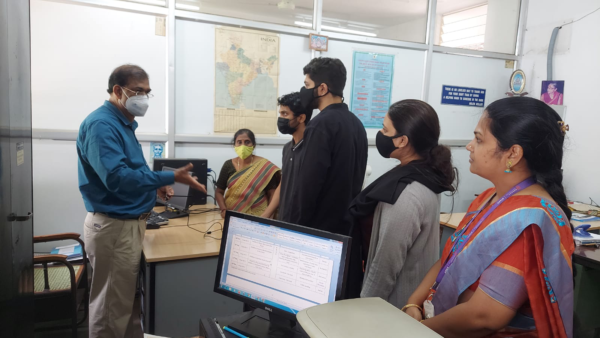Out of the 12 million blind people in India, less than 10% have learned Braile because of the steep learning curve, insufficient availability, and high cost. It is important that there is a low-cost solution to assist them in reading, as well as everyday tasks such as walking.
Five students of the IEEE CIS branch at M.S. Ramaiah Institute of Technology, Bangalore, amongst 3 volunteers, are working to create a low-cost, portable solution to assist the blind in reading and navigation. Their solution is a portable head-mounted device that uses computer vision and machine learning to read out any text to notify the user of nearby objects. The user will choose which function they want to use by pressing one of two buttons: read or navigation and from there, the device is ready to assist.
 The device consists of a camera, to capture images of the text and nearby objects, sensors, to detect the distance between the user and objects, and an embedded processing unit, which translates everything to the user. Both services are relayed to the user via speaker or headphones and are translated to their preferred regional language. There will be a basic model, which only works offline, and a premium model which can work online and offline.
The device consists of a camera, to capture images of the text and nearby objects, sensors, to detect the distance between the user and objects, and an embedded processing unit, which translates everything to the user. Both services are relayed to the user via speaker or headphones and are translated to their preferred regional language. There will be a basic model, which only works offline, and a premium model which can work online and offline.
The team has been granted $4,400.29 from EPICS in IEEE to start assembling this assistive device. The team will be working with the National Blind Association to better understand the needs of the blind with the hope of bridging the gap between the blind and the rest of society.

